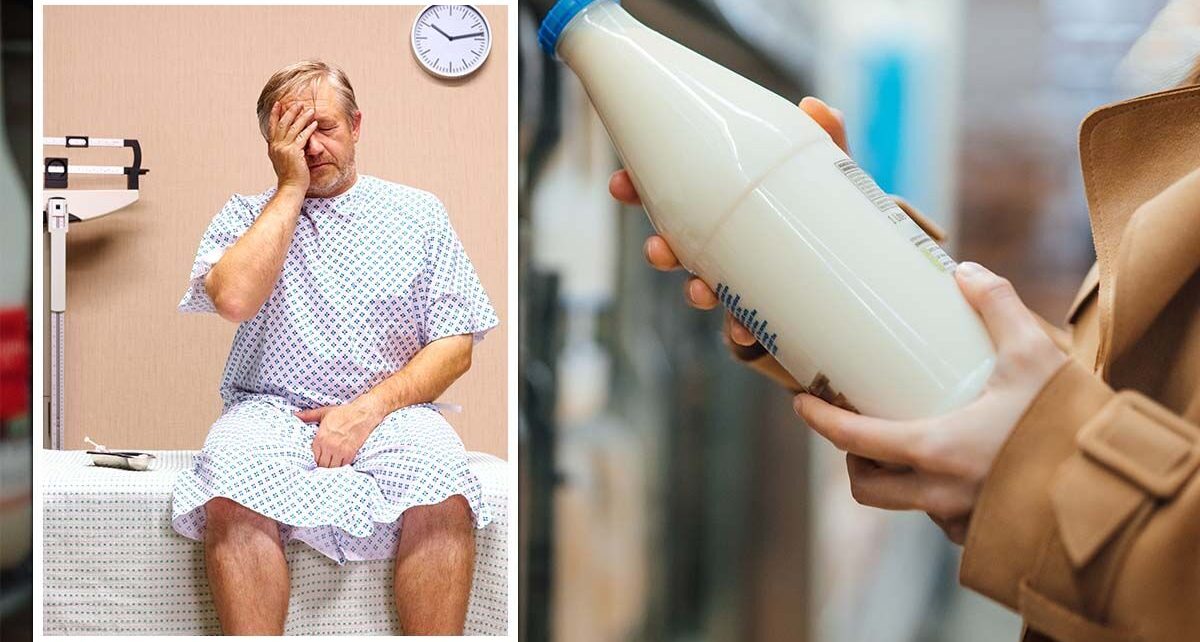Prostate cancer: Dr Philippa Kaye discusses symptoms
We use your sign-up to provide content in ways you’ve consented to and to improve our understanding of you. This may include adverts from us and 3rd parties based on our understanding. You can unsubscribe at any time. More info
One way to do so may be to cut out dairy products.
A new study conducted by Loma Linda University (LLU) has found men who consume higher intakes of dairy products such as milk have an increased risk of prostate cancer.
The study found no link between prostate cancer and intake of non-dairy calcium.
Gary Fraser of LLU said: “Our findings add important weight to other evidence associating dairy products, rather than non-dairy calcium, as a modifiable risk factor for prostate cancer.”

With regard to what intake is required to increase risk, the study said men who consumed the equivalent of one three quarter cups of milk per day had a 25 percent increased risk of prostate cancer compared to men who only drank half a cup of milk a week.
Furthermore, men who consumed 430 grams of dairy products also faced a greater risk of prostate cancer.
Fraser and his co-researcher’s findings are published in the American Journal of Clinical Nutrition.
The study highlights the potential impact of an individual’s diet on their cancer risk.
In a statement Fraser said of the results: “Most of the continuing increase in risk is done with by the time you get to 150 grams, about two-thirds of a cup of milk per day.
“It’s almost as if some biological or biochemical pathway is saturated at about two-thirds of a cup of milk per day.”
Fraser added one potential reason for dairy increasing the risk of prostate cancer is to do with the sex hormone present in dairy milk as 75 percent of lactating cows or pregnant.
Prostate cancer is known to be a hormone-responsive cancer so this is one potential avenue of investigation.

Prostate cancer is also one of the hardest cancers to spot early.
Symptoms normally appear in later stages when the cancer is harder to treat.
These include:
• Needing to urinate more frequently, often during the night
• Needing to rush to the toilet
• Difficulty in starting to urinate
• Straining or taking a long time to urinate
• Weak urine flow
• Feeling the bladder hasn’t emptied fully
• Blood in urine
• Blood in semen.

Meanwhile, this isn’t the first-time cancer has been linked to dairy products.
Another study published last year investigating a link between breast cancer and dairy consumption found a similar correlation; women who consumed higher levels of dairy products were at greater risk of cancer.
Breast cancer is the most prevalent cancer in the UK, accounting for over 15 percent of new cancer cases.
As part of the government’s decade long war on cancer, new treatments will be trialled as part of a bid to rid the UK of cancer.
Source: Read Full Article



